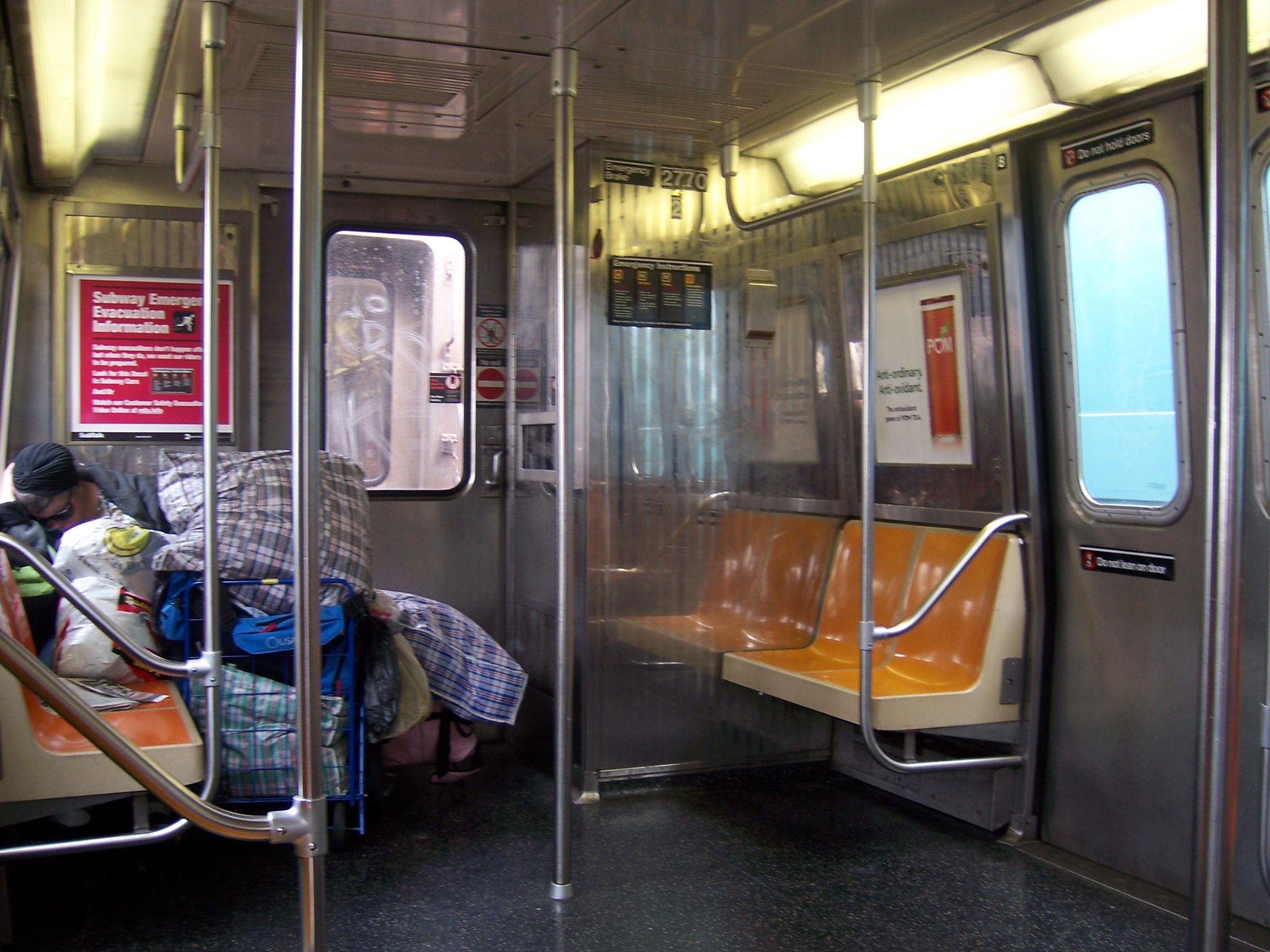The MTA cemented a series of emergency rules updating its code of conduct this week — rules that homeless riders and advocates said were aggressively anti-homeless.
At its meeting on Wednesday, the MTA Board approved, without discussion, a code of conduct update that polices what people can bring on to the subway and how people can ride the system, including a ban on "wheeled carts" over 30 inches long or wide, a requirement that riders leave a subway station if a train is taken out of service at a terminal, and a ban on spending more than one hour in a subway station after going through the turnstile.
Taken together, the new rules are "aggressively anti-homeless," in the words of one transit observer.
These are aggressively anti-homeless and not particularly subtle about it. Any violation can lead to an ejection from the subway. pic.twitter.com/7EaX1E3jOY
— Second Ave. Sagas (@2AvSagas) September 22, 2020
MTA Chairman and CEO Pat Foye told reporters that the rules did not criminalize homelessness on the system, but that they were instead in place as a matter of public health.
"The rules were proposed and have been adopted to promote hygiene and promote sanitary conditions on the subway and commuter rail, which is an item of public concern and public health at any time but especially during a pandemic," Foye told reporters after the board meeting.
New York City Transit Interim President Sarah Feinberg also cited public health when she defended the rules, suggesting that someone who stays in a subway station is more likely to spread coronavirus than someone who leaves a station.
"The purpose of the transit system is for people to move from one location to another," said Feinberg. "When you're in a moment where literally having people stay in one place, stay in one facility without leaving for hours on end, it increases the chances that you are moving virus around. We believed we needed to take steps to make sure that people were entering the system, using the system and exiting the system."
But homeless riders say that they feel targeted by the rules, which are just another way for police to harass people who fit a certain vision of homelessness.
"It's a target," said Anthony Williams, 58, who slept on the E train before he was placed in a hotel by a non-profit organization during the pandemic.
Riders who violated the code of conduct will be subject to summonses from the same police who were blasted last year for spending their time ticketing churro vendors on the subway. Williams suggested that NYPD or MTA Police won't think to ticket someone who doesn't "look homeless" if the person is in a station for longer than an hour, but someone with bags will instantly be a target.
"One person can be viewed as a respectable citizen, they probably won't get ticketed, no one will say anything. But a homeless person could be sitting there with a mask and gloves and because they've got baggage, they say, 'That's the target. We want them out of the system. Take this ticket and get out of the system.' That's the reality, that what comes down the pipe," he said.
Williams also said that for all the harassment homeless riders get on the subway, they're also as likely as anyone to be customers on the system.
"Homeless people don't jump the turnstile to ride," he said. "They pay. They still swipe a card. Every month, I used to buy an unlimited MetroCard so that when I want to get on the train to go to sleep or ride, I could ride. These people are customers, they paid to get on the train."
Advocates for the homeless also blasted the rule as having nothing to do with public health, instead pointing out that the MTA has a history of blaming the homeless when things go wrong. The agency and Gov. Cuomo spent time early in the pandemic suggesting that homeless riders were sowing chaos in the system, driven in part by complaints from subway riders and employees. Data showed homeless-related incident reports dropped to under two per day after the subway was closed overnight for cleaning each day, but even as homelessness-related delays reached almost 700 for the year recently, those delays pale in comparison to the thousands of signal-related delays that happen on the subway every month.
"The MTA is opportunistically using the pandemic to make long-sought anti-homeless measures permanent, right at a time when the city's homeless population is most vulnerable," said Helen Strom from the Safety Net Project at the Urban Justice Center. "In April, Gov. Cuomo and MTA President Sarah Feinberg explicitly promoted these rules as a way to remove homeless people from subway stations. These rules are an attack on homeless New Yorkers and have nothing to do with public health — why else would the MTA code allow people to stay in stations for a variety of activities, including performances, fliering, and religious activities, but specifically prohibit activities associated with people experiencing homeless, such as use of carts, panhandling, and even sleeping?"
oh. my god. pic.twitter.com/4lt0DoM4UR
— Jenny (@jennyaction) September 23, 2020
And transit advocates didn't buy Feinberg's, and called on Gov. Cuomo to find a "humane" solution to the city's homelessness crisis.
"Literally moving people along seems highly unlikely to reduce viral spread," said Riders Alliance spokesman Danny Pearlstein. "People who have been forced to live in public spaces need safe, private places to call home. Gov. Cuomo runs the MTA and the state budget. The governor must take the lead in finding humane, effective solutions to our intersecting transit and housing crises."






